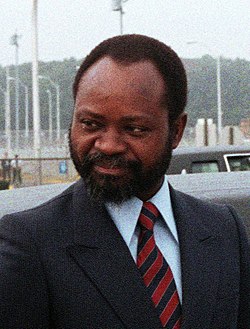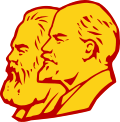Description
Like most Marxist thoughts, Machelism would defend state property, as well as a policy based on democratic centralism and the establishment of a socialist state in Mozambique, seeking literacy and the eradication of poverty. However, Machel's variant also manifests a strongly nationalist inclination, coming from the long war of independence that FRELIMO faced, and more vaguely pan-Africanist. It firmly rejects tribalism or African traditionalism, and seeks the creation and progressive establishment of its own Mozambican national identity, this being expressed in a phrase by Machel: "For the nation to live, the tribe must die." [2]
The term is usually used by detractors of Marxism-Leninism, such as Afonso Dhlakama, leader of the opposition RENAMO; as well as by traditional Marxists who reject Machel's nationalist variant; or by the social democratic members of FRELIMO identified with his successor, Joaquim Chissano, who are against excessive leftism in the party. Therefore, the name machelismo or machelista is considered to have a rather derogatory connotation, and is little used by Machel's followers. [3]
This page is based on this
Wikipedia article Text is available under the
CC BY-SA 4.0 license; additional terms may apply.
Images, videos and audio are available under their respective licenses.

